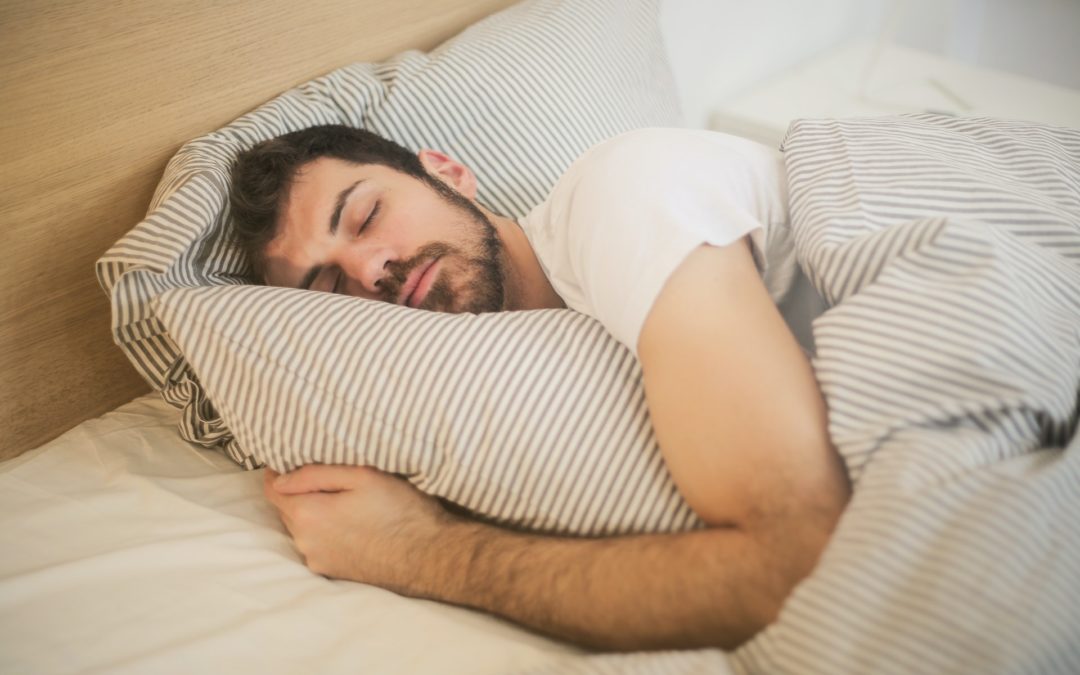When we talk about improving physical health, the conversation tends to center around topics like hitting the gym or cutting sugars out of our diet. Likewise, the focus of mental health improvement tends to lean towards therapy, medication, or meditation. However, we are forgetting one very important ingredient to improving mind-body wellness, and that is sleep.
Sleep and health are interrelated, but can become a bit of a catch-22: poor sleep leads to poor health, and poor health leads to poor sleep. Sleep disorders often occur in tandem with mental health disorders, like depression or anxiety—it’s something of a chicken-and-the-egg story. This correlation between sleep and health underscores the importance of catching those Z’s every night.
Here are 7 tips to improving the quality of sleep you’re getting, and—ultimately—improving your overall health and well-being:
1. Get into a rhythm. Try your best to go to bed and wake up at the same time every day…yes, even on the weekends. Limit napping during the day (especially if you have trouble falling asleep at night), and if you find yourself getting groggy before bedtime, try to do something lightly stimulating: do a light stretch or a meditation, call a friend, or tackle a small household chore that’s been sitting on your to-do list for a while.
2. Control your light exposure. During the day, try to get lots of light—starting with a dose of bright sunlight at breakfast! Let natural light into your home or office, and if that’s not possible, consider the use of a light therapy box. At night, avoid bright screens—your phone, tablet, or TV—within 1-2 hours of bedtime. If you wake up in the middle of the night, try to keep off your phone and the lights off or at least dim if you absolutely must turn them on.
3. Exercise! Exercise is directly linked to better quality sleep, but try to exercise early in the day—if you exercise too close to bedtime—within 3-hours of bedtime, to be precise—you may find your adrenaline is still pumping, and preventing you from getting that much-needed shut-eye.
4. Watch your diet. Reduce your intake of sugary foods, refined carbs, caffeine, and nicotine. Furthermore, avoid big meals at night to prevent indigestion and heartburn while you’re trying to sleep. Also, stop drinking water a couple of hours before bedtime…otherwise, you may be getting up for frequent bathroom trips when you should be sleeping.
5. Clear your mind. Before going to bed, put your cell phone away and practice some deep breathing exercises, or do an in-depth body scan to help alleviate any tension you may be carrying from your day.
6. Make your bedroom a sanctuary. Keep your room dark, cool, and quiet. Make your bed irresistibly comfortable, and reserve its use only for sleeping and intimacy.
7. Practice different ways to get back to sleep if you wake up in the middle of the night. Revisit your breathing techniques or do another body scan, and try not to get stressed out about falling back asleep—maybe aim just to relax, rather than pressure yourself to fall back asleep.
Improved sleep can work wonders for your mental and physical health. If you are regularly unable to sleep without disturbances, please contact your primary care physician.
Contact JoyDeVie Infusions
At JoyDeVie Infusions, we offer IV hydration therapy that may help you sleep better in the long run. Contact us to learn about the IV hydration and vitamin infusion options available at our wellness center.

